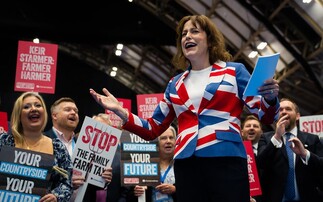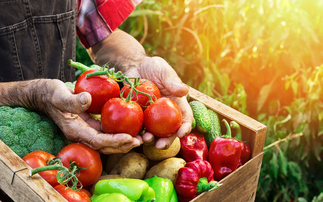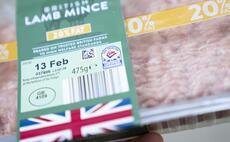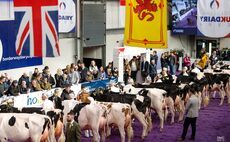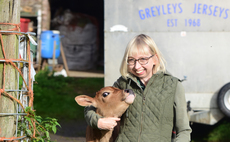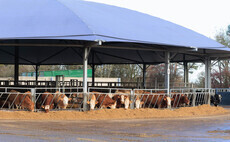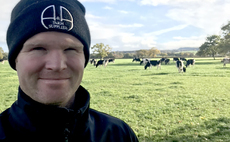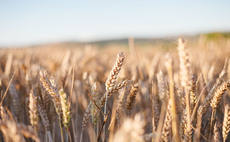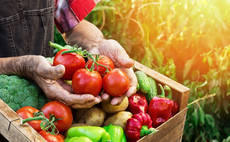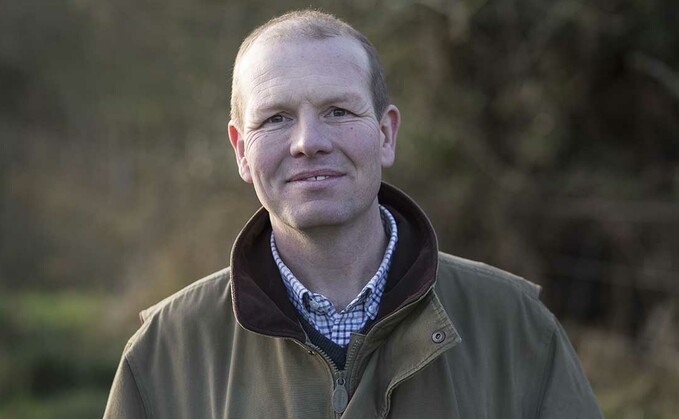
Martin Lines, chief executive at NFFN, said: "We have failed to make a strong, united case to the Government, to the Treasury, and to the public about the enormous value farmers deliver - not just in food, but in climate resilience, nature recovery, water quality, flood mitigation, and public access."
Over the past few years, farming unions and various action groups across the UK have been pushing hard on one narrative - that farming is all about food production.
The slogan, 'No Farmers, No Food' is everywhere. But how true is this?
READ NOW: From the editor: We can and must have ambitious targets for both food production and the environment
It is unquestionably the case that some farmers grow ingredients and raise livestock that feed into the food system.
But if we take a closer look, can we honestly say the farming sector as a whole is feeding the nation?
LISTEN NOW:
I believe it is time for a reality check and a broader view of who is really keeping the system running.
The Labour Party has always been a strong supporter of workers.
Resilient food system
Across our food system, hundreds of thousands of people are employed in packaging, processing, assembly lines, warehousing, logistics, retail, and food service.
These workers are just as integral to 'feeding the nation' as the farmer growing wheat or rearing beef.
If we want to talk seriously about a resilient food system, we need to consider the full picture.
Healthy food
We also need to admit that growing commodity crops for animal feed or barley for brewing – while important – is not the same as delivering healthy, affordable food directly to the public.
LISTEN NOW: The Farmers Guardian Podcast: Trump, tariffs and tractors – what do US policy moves mean for UK farming?
'Public money for public goods'
Since Brexit, and through the Agricultural and Environment Acts, the UK has set a clear policy direction based on the concept of public money for public goods.
This principle has shaped the transition away from direct payments, especially in England, where support is now tied to outcomes that benefit the wider environment.
Food security
This makes sense. Real food security does not come from producing more of the same at any cost. Rather, it comes from healthy soils, thriving biodiversity, and a resilient farmed landscape.
Yet many farming organisations have spent years resisting this shift.
PLEDGE YOUR SUPPORT: Join Farmers Guardian's Save Britain's Family Farms campaign
Why the opposition to investing in environmental improvements, the very things that underpin long-term productivity and sustainability?
Managing landscapes
All farmers manage landscapes, whether or not they recognise it in economic terms.
Most do so while trading at global commodity prices that fail to reflect the higher environmental and animal welfare standards we rightly expect in the UK.
Paying farmers to protect and enhance the land makes sense, for them and the public.
'Wasted time'
But instead of championing that message, much of the sector has wasted time fighting the wrong battle.
WATCH NOW:
We have failed to make a strong, united case to the Government, to the Treasury, and to the public about the enormous value farmers deliver - not just in food, but in climate resilience, nature recovery, water quality, flood mitigation, and public access.
Role of farmers in society
We should be shouting from the rooftops about the value of the UK landscape, its role in the economy, in public health, and in national security.
Studies show that investing in natural flooding solutions delivers a tenfold return through carbon storage, reduced damage and wellbeing improvements.
Farmers can save the NHS
It has also been estimated that universal access to green space could save the NHS billions. This is not about abandoning food production.
Of course we should fight for fairer prices and a more functional supply chain: that is a private market failure that needs fixing. But public money must be used for public outcomes.
SIGN THE PETITION: Embed food, farming, and sustainability education into the national curriculum
That means building a system where farmers are supported to produce high-quality food and deliver public goods.
Private finance has a role to play too, but only if it is properly supported and regulated.
'Clear framework'
Farmers need a clear, fair framework: clarity about what constitutes a public good, and therefore is entitled to taxpayer support, and what is a private benefit, where markets or companies must step up.
Without that clarity, private investment will not scale, and farmers will be left in the dark, unsure how to plan, invest, or adapt.
Spending review
Right now, as the Treasury reviews spending and future budgets hang in the balance, the farming sector has a choice.
Do we continue rolling tractors into cities, sticking signs on fences, and shouting slogans that oversimplify reality?
Or do we focus on making a positive, forward-thinking case for farming that works for society and the environment?
If we want support to last – and to grow – we need to show what we are delivering in return. Not just raw commodities, but clean air, clean water, thriving wildlife, and healthy communities.
That is the bigger picture. That is what will unlock long-term investment and public trust. It is time we stop fighting the old fight – and start leading the new one.
READ NOW: Letters: "Get the plough out and farm every last inch of your farm like it's World War Three"










